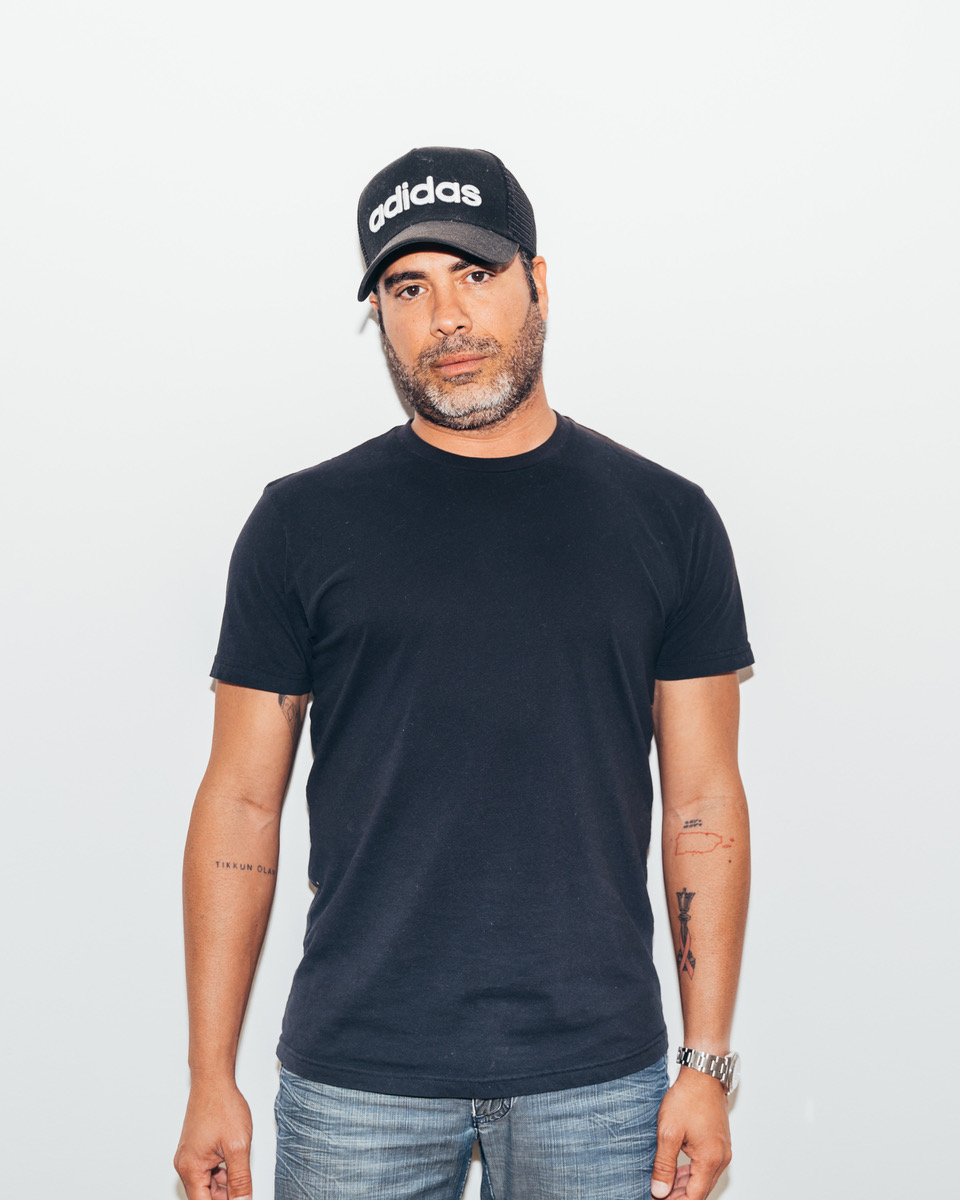Interview by Carol Wright | Photo Credit: Nate Taylor, IG: @nate_taylor
We got to chat with the award-winning film, television, and commercial producer Sevier Crespo, who has dedicated his career in Hollywood to increasing Latinx talent in front and behind the camera. Crespo talked to NYOTA about navigating the industry and what he looks for when it comes to producing a film or television show.

Before finding your interest in the producing side of the business, did you want to be a performer?
I have always been a creative person, and I’ve always been able to write, act and direct along with production. I love projects that don’t limit you or make you pick just one thing.
The film industry is not an easy field to get into or navigate. What were some of your early opportunities or experiences that helped you get your foot in the door?
It’s hard to point out one opportunity or situation that helped me get my foot in the door, but the main thing has been character and work ethic. There is a saying, “preparation plus opportunity equals luck,” and I think there’s a balance in there. With great personality and character, you just need to show up and work hard. People wanted to provide opportunities, to give me a shot at something because I was flat broke. I was offered a film that had been taken away at the last minute, and I was applying to work at 24-hour fitness on Hollywood Blvd. My buddy called me and asked what I was doing, and I said, “Applying for a job because I’m broke.” And he said he had a job for me, which was to write a script. The next thing I know, I’m on a flight to Chicago to meet with the people for it, and then I’m writing a script and earning money. After that, I felt it was up to me. My friend said I’m not going to hook you up. You’re going to have to go prove to them that you can do this. If I hadn’t been prepared with a good work ethic and character, I don’t think it would have worked out.
A big part of your mission as a Producer is to increase Latinx representation and bring more Latinx stories to Hollywood. What resistance have you seen as you push for this and what has that taught about the industry itself?
I think the main resistance is always something new, something different, something people don’t understand. At first, it used to rub me the wrong way. I used to listen to other people who were asking why there weren’t more pro-Latinx projects, and I’d jump on their bandwagon. But then I realized that was not really the issue. People are just uncomfortable with what they don’t know, what they are ignorant to—but that doesn’t mean that people aren’t open to it. You just have to figure out how to maneuver that and show them how things can be cool, how things can be looked at from another perspective. The industry taught me to not be defensive and to not think that the world or industry is out to get me. Instead of being defensive or getting upset, I found a way to maneuver through it.
On the other side of that, what have been some rewarding moments of your career when it came to representation or getting projects greenlit that might not have moved forward otherwise?
One of those moments was when I was doing a small film called “El Guardia” in Puerto Rico. I met a great director from Chile, and we put together a team. We shot the project, and it ended up going to Cannes. Something that I was very unsure of in the beginning wound up being a truly great experience. The current project I’m working on, “Billy Knight,” is something that took some work to get going. But it’s become one of my best experiences with some of the best people I’ve ever met. I hope to be around them and work with them for a very long time. It has been very rewarding.
The projects you’ve produced are very different. What do you usually look for when it comes to producing a film or television show?
At first, it used to be about booking the work, and gaining experience, and for it to resonate in some way with me. I’ve always been very grateful for whatever comes my way and have certainly experienced things going to someone else or not getting made at all. I realized as long as I enjoy the project or enjoy what it could look like, what it could be like—whether or not it ever reaches that—that’s what attracts me to it. If it’s going to make me laugh or make others laugh, or move them, or has a message, that’s what attracts me to projects.
What advice do you have for those who want to work in the film industry?
Figure out who you are and what you want to do in life as a person, and let that translate into the industry. Hold your ground because people come and go, conversations come and go, meetings come and go, and individuals, people’s agendas, and motives. If you don’t know who you are, what you want, and what you stand for as a person, you’re going to get bullied and run over. Hopefully, doing that makes you a stronger person in this environment. I would say you want people in your life that have similar characteristics—you want like-minded people around.




